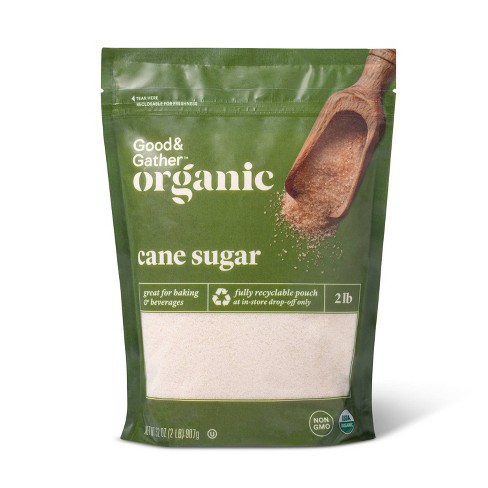Opening Prospective: Cane Sugar Processing Chemicals Demystified
Opening Prospective: Cane Sugar Processing Chemicals Demystified
Blog Article
Navigating Regulatory Conformity and Sustainability With Cutting-Edge Cane Sugar Processing Chemicals in the Chemical Export Market

Regulatory Landscape Introduction
In the world of cane sugar handling chemicals within the chemical export industry, recognizing the governing landscape is vital for guaranteeing compliance and sustainable procedures. Regulative bodies such as the Environmental Protection Company (EPA) and the Fda (FDA) play a crucial role in supervising the manufacturing, import, and export of these chemicals. Conformity with guidelines set forth by these bodies is not only a legal need however also essential for keeping public health and wellness and ecological security standards.
Governing frameworks controling walking stick sugar handling chemicals incorporate a large range of aspects, consisting of labeling requirements, acceptable levels of specific materials, and guidelines for safe handling and disposal. For chemical exporters, this indicates sticking to rigorous documentation processes, top quality control steps, and periodic audits to demonstrate adherence to these regulations.

Lasting Walking Cane Sugar Chemical Innovations
One noticeable location of innovation is the development of eco-friendly chemicals that reduce water and energy intake during the sugar processing stages. By carrying out these sustainable services, firms can reduce their carbon footprint while keeping high levels of efficiency. Additionally, developments in biodegradable chemicals are getting grip, providing a much more ecologically friendly option to standard handling representatives.
Furthermore, the assimilation of eco-friendly energy sources in the manufacturing procedure is ending up being a lot more widespread, further improving the sustainability profile of walking stick sugar handling. By welcoming these sustainable walking cane sugar chemical developments, companies can not only satisfy regulative requirements however additionally demonstrate a dedication to ecological obligation in the chemical export sector.
Conformity Obstacles in Exporting Chemicals
Navigating governing structures presents considerable difficulties for chemical exporters, needing thorough attention to conformity requirements and international laws. Exporting chemicals involves adherence to a complicated internet of regulations that differ from country to nation. One of the key compliance obstacles encountered by chemical exporters is making sure that the items satisfy the specific regulatory needs of the importing nation. This consists of acquiring the needed licenses, certifications, and documents to demonstrate the safety and legality of the chemicals being exported.
Furthermore, chemical merchants need to remain abreast of continuously advancing requirements and regulations connected to chemical transportation, handling, and manufacturing. Failing to follow these regulations can lead to extreme consequences, consisting of penalties, legal action, and reputational damages. In addition, browsing trade limitations, sanctions, and export control regulations includes one more layer of complexity to the conformity landscape for chemical merchants.
To alleviate these obstacles, chemical exporters need to purchase durable compliance programs, conduct regular audits, and involve with regulative authorities to guarantee a detailed understanding of the suitable regulations and laws. By prioritizing conformity and staying positive in attending to governing obstacles, chemical exporters can navigate the intricacies of international profession successfully.
Ecological Influence of Walking Cane Sugar Handling
The ecological implications of walking stick sugar handling are a critical facet calling for complete examination in the chemical export market. Walking stick sugar processing can have substantial ecological impacts at different phases of production. One of the key concerns is the generation of large quantities of wastewater containing natural matter, put on hold solids, and chemicals made use of in the handling plants. This wastewater, if not effectively treated, can pollute water bodies, harm aquatic life, and weaken general water top quality. Additionally, the burning of sugarcane fields before gathering, a typical technique in some regions, releases hazardous air contaminants and greenhouse gases right into the environment, contributing to air top quality issues and environment modification.
Moreover, the considerable usage of chemicals and fertilizers in sugarcane cultivation can lead to dirt deterioration, water contamination, and harm to non-target microorganisms. It is critical for chemical exporters included in the walking cane sugar handling sector to apply lasting methods, invest in sophisticated wastewater treatment innovations, advertise liable agricultural techniques, and stick to rigid environmental laws to lessen the unfavorable ecological impact of their operations.
Future Trends in Sustainability Practices
What cutting-edge techniques are chemical merchants in the walking stick sugar processing industry taking on to enhance sustainability practices for basics the future? As the need for lasting techniques continues to expand, chemical exporters are welcoming numerous trends to make sure a greener future for the industry. One prominent fad is the change in the direction of creating and using environmentally friendly chemicals in the processing of cane sugar. These chemicals are created to lessen environmental influence while maintaining high degrees of performance in the manufacturing procedure.
Another essential pattern is the implementation of innovative modern technologies such as automation and information analytics to maximize resource use and lower waste generation. By taking advantage of the power of information and automation, chemical exporters can enhance their procedures, enhance power performance, and click this link improve total sustainability performance.
Additionally, partnerships and partnerships with sustainability-focused companies and stakeholders are ending up being increasingly common. By interacting, chemical merchants can trade knowledge, share ideal practices, and collectively drive advancement towards more lasting walking cane sugar handling methods. Embracing these fads will certainly not only benefit the atmosphere but likewise guarantee long-term success and competitiveness in the industry.
Verdict
To conclude, the chemical export market should navigate intricate regulatory landscapes and sustainability challenges when processing cane sugar. Innovations in cane sugar handling chemicals are crucial to satisfying conformity standards and minimizing ecological impact. As the industry proceeds to advance, it is important for companies to take on sustainable methods and stay in advance of future fads to make sure long-lasting success.
In the world of walking cane sugar processing chemicals within the chemical export industry, recognizing the regulative landscape is extremely important for ensuring compliance and lasting procedures.Checking out ingenious methods in the advancement of sustainable walking stick sugar chemical services is important for progressing environmental stewardship in the chemical export sector. Business are increasingly spending in research study and development to develop sophisticated walking cane sugar handling chemicals that not just guarantee high efficiency in sugar production but likewise adhere to rigorous sustainability requirements.
Additionally, chemical merchants have to remain abreast of regularly developing policies and criteria related to chemical transport, manufacturing, and handling - Cane Sugar Processing Chemicals.The ecological implications of cane sugar processing are this article an important aspect requiring thorough evaluation in the chemical export market
Report this page